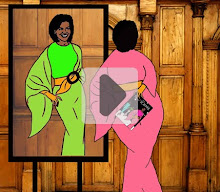My brother was kind enough to pass this article along to ruin my weekend: We Nneed the Singular ‘They’ – and It Won’t Seem Wrong For Long. He thought it could provide fodder for my Monday Moanin’ post, and that it did, splendiferously. He noted that while “it was written by an educated woman who clearly knows better, her allegiance to the 198 or so newly discovered genders demands that she take this position.”
The article is written by Stephanie Golden, a ground breaking editor in her own right who has been serving humanity with gender equality copy since the late 60’s.
“As a manuscript editor at the New York branch of Oxford University Press, I helped engineer the next contentious usage shift. Feminism was acquiring legitimacy (much like non-binary gender identities today), and feminists pushed for nonsexist language, including alternatives to ‘man’ and ‘he’ as generics.”
In other words she was a willing and useful soldier in the early years of the gender wars. She enthusiastically embraced all the silly “work-arounds” still in place today to pander to feminists and foul the English language. She can be held at least partially responsible for enlightened updates of previously mellifluous phrases such as “to bravely go where no man has gone before” to the mundane “to where no one has gone before.” So thanks, Stephanie, for neutering the Starship Enterprise’s offensive mandate. What else do you want from the English language?
As it turns out she wants it to solve the gender pronoun trap that has been laid now that people have been encouraged to believe that there are more genders than San Francisco has piles of human excrement. And she has even proposed a solution to the gender pronoun problem in the age of the non-binary, seemingly infinite, gender spectrum. And all we have to do to solve this intractable problem is embrace the suck.
She thinks we should adopt “they” as the English standard’s third-person, gender-neutral pronoun in all writing and speaking contexts. And don’t worry, you’ll get used to the bad English in no time.
So she ends up where progressives always do: acquiescing to a bunch of stupid people with a stupid solution in order to sidestep the sticky wicket of somebody, somewhere feeling offended by something.
That’s seriously close to throwing out the baby (gender unspecified) with the bathwater
We can assume she agrees with the offended in this case, as we know that when progressives don’t agree with those taking offense, their default action is RESIST rather than acquiesce.
But Steph has lots of backup in the pronoun war, where the only resolution is for the language to conform to accommodate the demands of the gender-freaks rather than expecting them to conform to normative societal conventions (all most assuredly established by white guys).
Now comes ‘they’, and I admit it’s a tough one. Paula Froke, the AP Stylebook lead editor, gives two reasons for embracing ‘they’: ‘recognition that the spoken language uses they as singular’ and ‘the need for a pronoun for people who don’t identify as a he or a she’. The first ‘they’, as in ‘Everyone can decide which personal pronoun best matches their identity’, is what people have been doing for centuries anyway; most of us already use it without thinking.
I really must interject here: the only reason people have been “doing” it for “centuries” – by which I presume she means the later half of the 20th and the early part of the 21st – is because the feminazi’s insisted we stop using “he, him, etc. as a generic, genderless pronoun in such sentence structure. Up till then people may have “done it” but it was considered incorrect grammar, would earn a red mark when used in an essay and hopefully be pounded into your skull that it was NOT the correct use of the pronoun.
Until our author and other editors decided to advance the feminist cause by taking it upon themselves to refashion the English language by making it politically correct very few people of letters thought to use “they” where “he” sufficed. But ever since then language has been used as a weapon in the long war against men. But let us move on to the second part of Steph’s argument for making “they: and “theirs” singular as well as plural.
But the second usage, which raises fundamental questions about identity, society and the nature of reality itself, has met furious resistance.
A sentence like ‘Carey makes themself coffee every morning – they hate tea’ violate deeply engrained rules of grammar. Saying ‘Lisa told me they love gardening’ calls into question basic categories of being. For many people, ‘they’ is the untuned string that portends discord and chaos…
Language evolves, and no amount of fulminating, or imposition of rules, can stop it. But more importantly, justice demands that we make the effort to accept ‘they’, ‘themself’ or any new gender-neutral pronouns that achieve widespread use. A language that collapses male and female into ‘man’ reflects a society that strips women of their separate being. And a language that collapses the spectrum of gender identities into male and female reflects a society that refuses to acknowledge the identity and very existence of a significant segment of its population. In the Trans Allyship Workbook (2017), Davey Shlasko writes:
The rule against using singular they is enforced neither because it preserves some consistent, objective grammatical standard, nor because it serves our communication needs. It is enforced because enforcing language norms is a way of enforcing power structures.
And there it is: PATRIARCHY! I knew it, “patriarchy” is the new progressive bogey-man (person?) that the tribe can huddle, offended, around.
Our editor/author concludes by saying that although she believes that using “he or she” worked “if used well” she still believes it must be dropped now “simply because it leaves out other gender identities.”
And we can’t have that because, shut up!
While I still adhere to the “there are only 2 genders” rule I do have a modest proposal that could end this crisis of genderization. Could we all just stipulate to the pre-I-Am-Woman-Hear-Me-Roar era convention of gender neutrality? That is to say, in certain usage he, his, man, and men refer not to genitalia of any sort but rather to the entire human genus of Homo sapiens, regardless of which of the 198 genders you identify with.
I mean, let’s not make this any harder than it has to be because it’s only going to get tougher. What are we to do once our fellow Earthlings no longer identify as humanoids at all?
Maybe we should be working on what we’ll have to do to accommodate them instead of trying to reinvent the old gender pronoun controversy.
For the record, when they day comes, I’d like to recommend the exclusive use of youse and youse youses as both singular and plural pronouns for all life-forms.
RELATED: From Gerard, SAY THE DAMNED PRONOUNS
Linked By: Larwyn’s Linx on Doug Ross@Journal, and BlogsLucianneLoves, and Free Republic, Thanks!




























